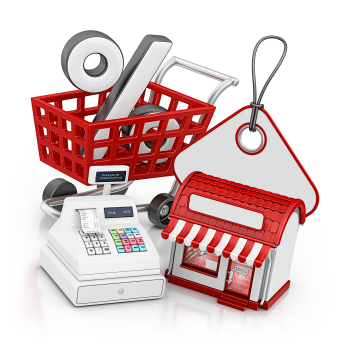If you take your product-based business seriously, then this article is for you. If you can`t afford to spend tens of thousands of dollars on untested trade shows or untried marketing strategies then read on..
Mistake 1: Thinking Retail is Easy
This mistake and misconception come about more often with new and smaller manufacturers who are looking to operate on a lean budget. Retail is simple, all you have to do is sell your product to a store that has a need for it. Right?
No. Not even close.
Retail strategy is extremely important, especially when first starting out. Mistakes 
made in pricing strategy, targeting, fees, or market demand analysis can mean the end of your business! That`s right, the end of your business. I`ve honestly talked with and heard about companies who had a great product and ambitious employees but died due to poor planning and a lack of retail knowledge.
I`ve also had people tell me that they can handle retail activity on their own – 2 months later I get an email informing me that retail is tougher than they thought. While it´s tempting to say “I told you so”, having been in their shoes before I understand the struggle.
Even if you`re not going to seek a part-time consultant or experienced retail marketer to help out with retail strategy, finding a credible retail-readiness course or scheduling just a few hours of retail consulting can help tremendously.
The earlier you start off in the right direction, the fewer problems you run into later on.
Mistake 2: Focusing Too Heavily on Sales Reps
SALES SALES SALES!! What`s wrong with focusing on sales?
Nothing is wrong with focusing on sales when you are struggling to create and maintain cash flow for your business. Typically manufacturers prefer starting online or establishing a steady revenue from online sales before moving offline – which is usually a sound strategy.
The issue with focusing too heavily on sales occurs when you lose focus on other important aspects of retail – such as sell-through rates and management.
Retail buyers really don`t care if you sell them 10 products or 10,000 products if they can`t sell any of them to end-consumers. Retailers (large or small) only care about sell-through rates – which is to say – their bottom line.
Sales reps can be great for getting your foot in the door with well-known retailers as well as smaller ones; however, once your product is on the shelf how will you generate sell-through? How are you outselling your competition at the storefront?
Mistake 3: Underestimating Time to Manage
If you`re reading this article and run your own business, you know how valuable your time can be. You might already be handling customers, social media, product inventory, financials, and perhaps even a family if there`s time. Getting into retail requires a large amount of time planning and executing, and unless you have more than 24 hours in a day you may find it overwhelming.
Selling your product and putting it on the retailer`s shelf is only half the battle – having enough time to manage promotions, products, communications, and provide sales training for in-store staff can be difficult.
Hiring an experienced retail marketing or consultant may cost more per hour than doing it yourself, but how much quicker do you think they`ll be able to plan and execute your retail activities? Probably in at least a third of the time. And saving this time might allow you to develop a new product, promote more in person, or do whatever you do best.
If you could save 20 hours of work a week, wouldn`t you be interested?



